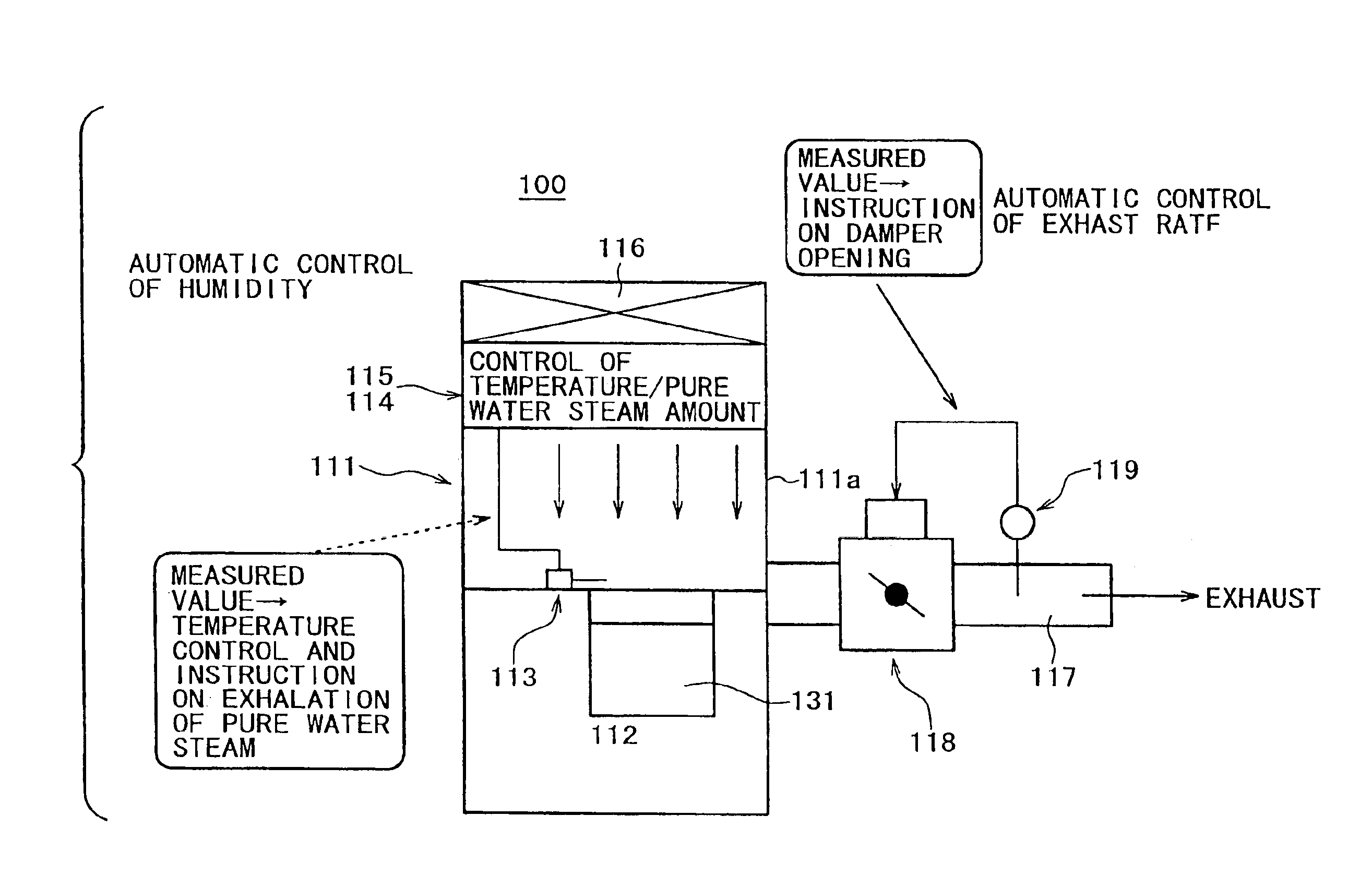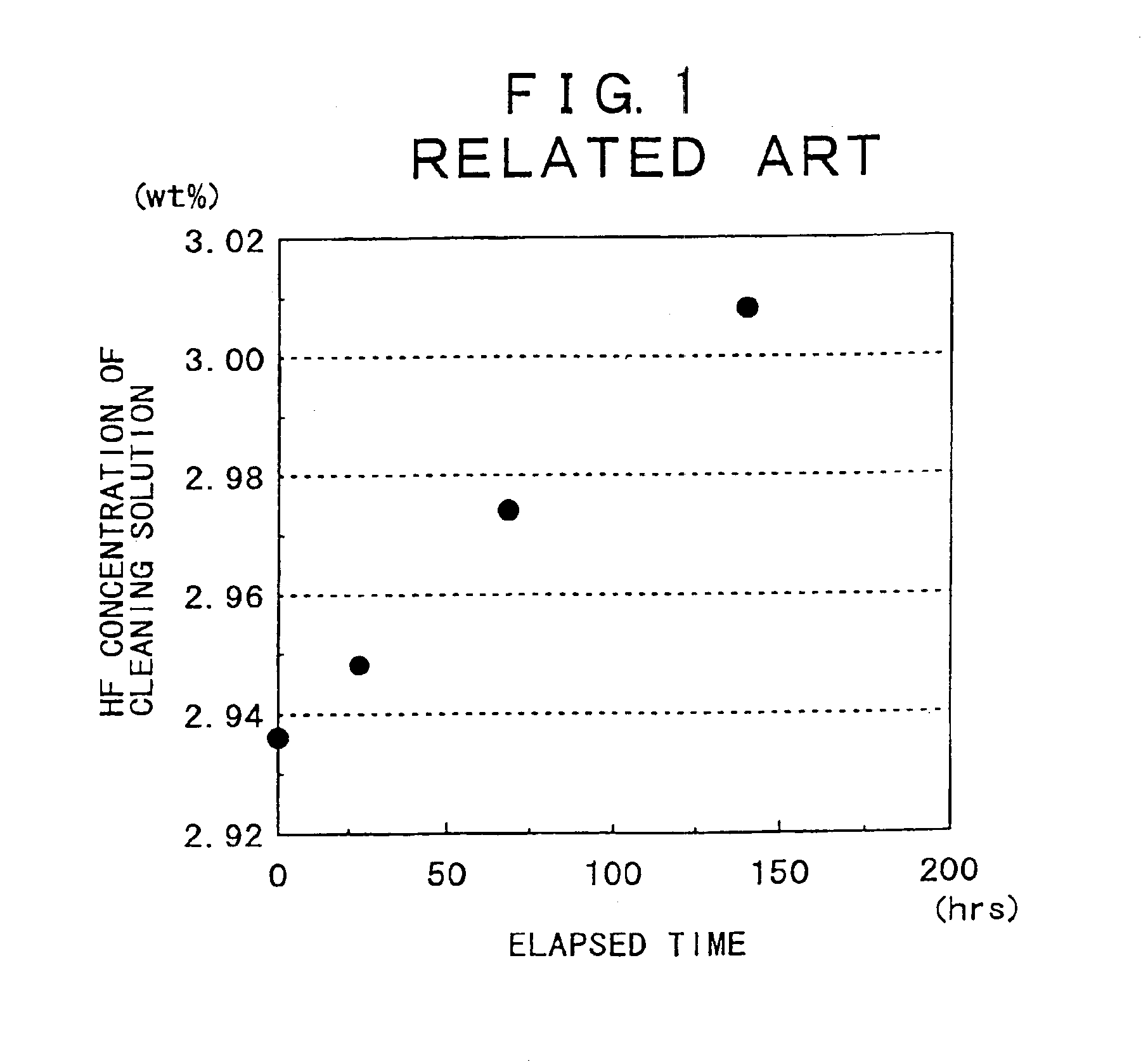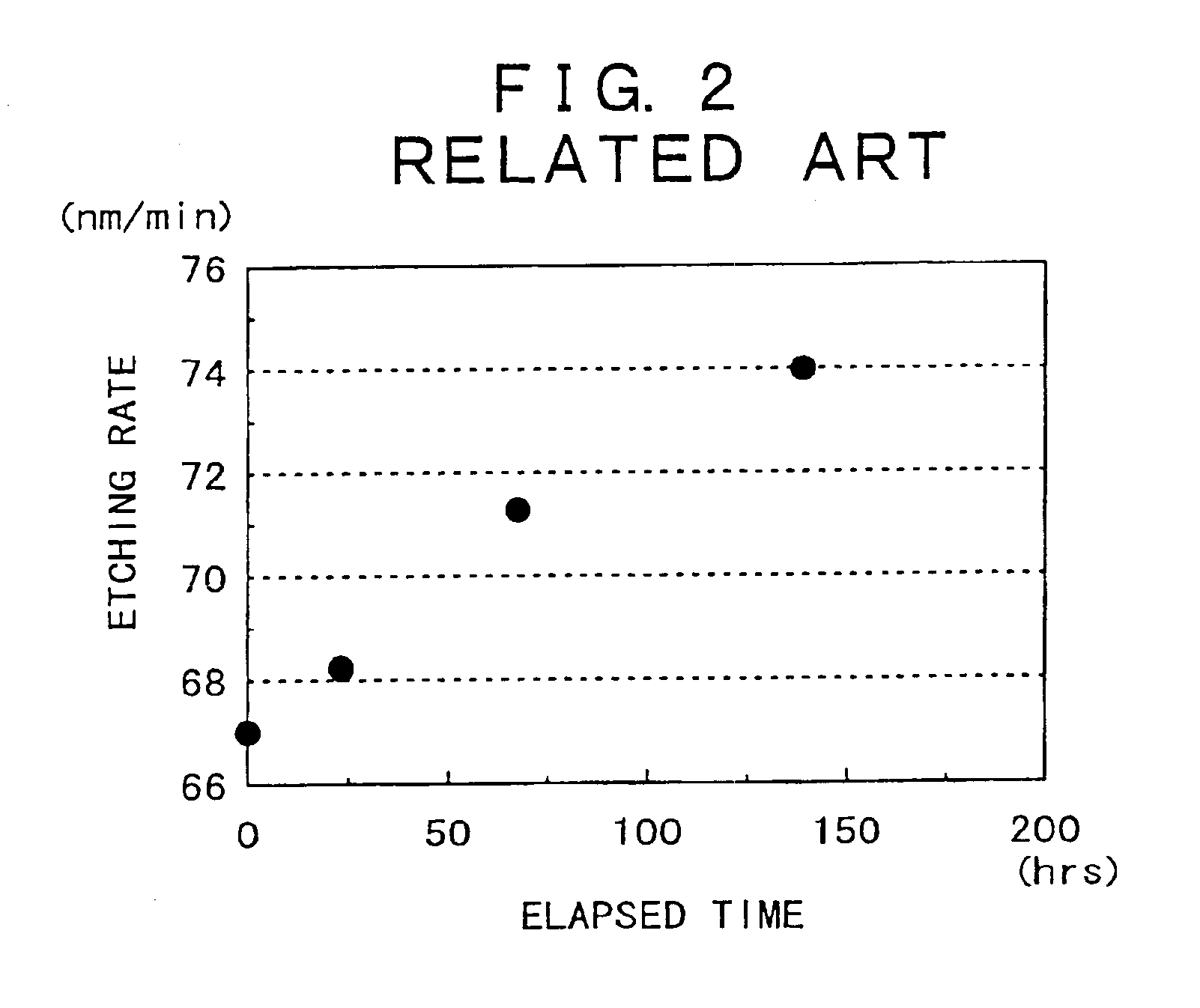Method and apparatus for wet-cleaning substrate
a technology for cleaning substrates and substrates, applied in the direction of process and machine control, semiconductor/solid-state device testing/measurement, domestic heating, etc., can solve the problems of large amount of resources consumed, large amount of cleaning solution required, and difficulty in providing higher yield of semiconductor substrates and liquid crystal display substrates. , to achieve the effect of reducing the amount of waste water, reducing the amount of cleaning solution consumed, and reducing the frequency of replacemen
- Summary
- Abstract
- Description
- Claims
- Application Information
AI Technical Summary
Benefits of technology
Problems solved by technology
Method used
Image
Examples
Embodiment Construction
[0102]FIG. 9 is a schematic illustration of an apparatus for cleaning a substrate (a wet-cleaning apparatus), together with a substrate cleaning method carried into operation using this wet-cleaning apparatus. FIG. 10 is a graphical representation of the etching rate of a silicon oxide on the surface of a semiconductor substrate when a cleaning method of the present invention is used, in comparison with that when the cleaning method in the related art is used.
[0103]A substrate cleaning apparatus 100 has the following structure. A cleaning bath 112 is provided at a lower part of a cleaning draft (a draft chamber) 111 having a pivotal door (not shown), and a hygrometer (or any type of detector measuring humidity) 113 is installed in the vicinity (of the surface level of a cleaning solution 131) of an upper end of the cleaning bath 112. A humidifier 114 and an air conditioner 115 are provided right above the cleaning bath 112, and a dust removal filter 115 is connected to the air inflo...
PUM
| Property | Measurement | Unit |
|---|---|---|
| humidity | aaaaa | aaaaa |
| temperature | aaaaa | aaaaa |
| time | aaaaa | aaaaa |
Abstract
Description
Claims
Application Information
 Login to View More
Login to View More - R&D
- Intellectual Property
- Life Sciences
- Materials
- Tech Scout
- Unparalleled Data Quality
- Higher Quality Content
- 60% Fewer Hallucinations
Browse by: Latest US Patents, China's latest patents, Technical Efficacy Thesaurus, Application Domain, Technology Topic, Popular Technical Reports.
© 2025 PatSnap. All rights reserved.Legal|Privacy policy|Modern Slavery Act Transparency Statement|Sitemap|About US| Contact US: help@patsnap.com



